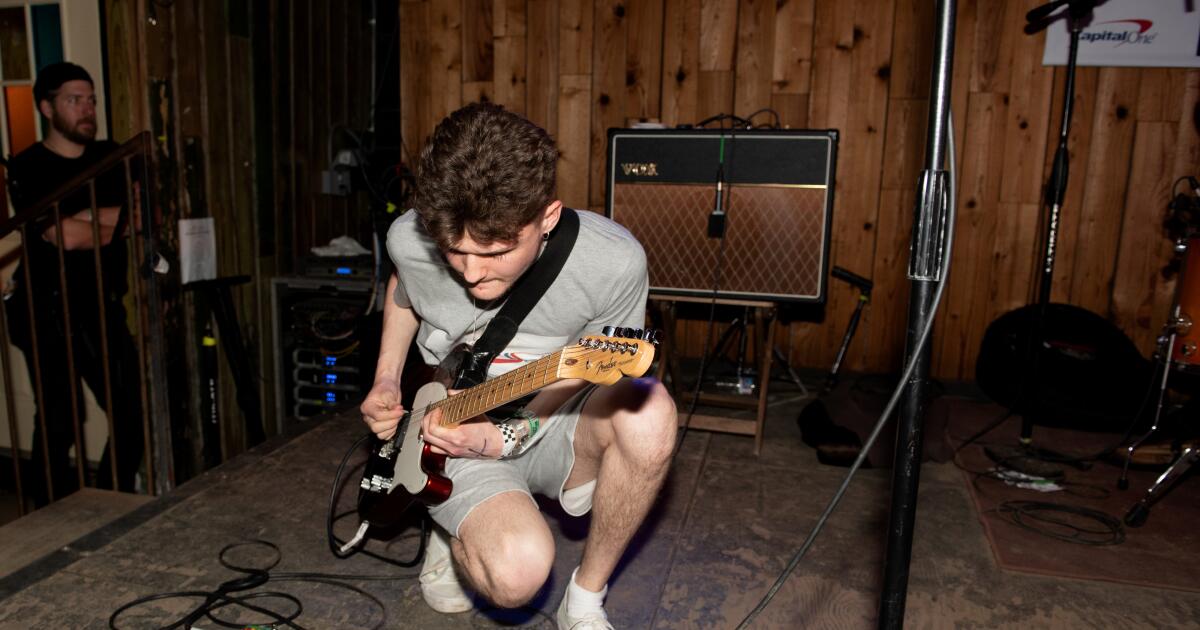Matt Kwasniewski-Kelvin, guitarist for Black Midi, dead at 26
Matt Kwasniewski-Kelvin, a founding guitarist of the acclaimed London post-punk band Black Midi, has died. He was 26.
In statement from the guitarist’s family, posted by band’s label Rough Trade on Monday, they said, “It is with deep sadness that we as a family regret to inform you that Matthew Kwasniewski-Kelvin has died after a long battle with his mental health. A talented musician and a kind, loving young man finally succumbed; despite all efforts.”
Kwasniewski-Kelvin met his Black Midi bandmates as a teen at the London performing arts academy BRIT School. The band performed alongside a loose crew of like-minded acts like Black Country, New Road, Shame and Squid who were experimenting with noise, free jazz and textured art-rock, centered around the Brixton venue the Windmill.
Known for its live-wire performances and Kwasniewski-Kelvin’s avant-garde approach to guitar, the band’s 2019 debut LP “Schlagenheim” was a defining statement from their scene and shortlisted for the Mercury Prize. They took an omnivorous approach to recording, performing spoken-word jams and a radio play and covering Bruce Springsteen and Christmas standards.
Kwasniewski-Kelvin announced a hiatus from the group for mental health reasons in 2021, and did not perform on its 2021 follow-up LP “Cavalcade,” though he did co-write some songs. The band released one more album, 2022’s “Hellfire,” before parting ways.
In 2024, Kwasniewski-Kelvin released a solo single, “Paedophile Ring [Free Palestine] [End the holocaust] [End the war now],”on Bandcamp.
“He will always be loved,” the family’s statement continued. “Please take a moment check in with your love ones so we can stop this happening to our young men.”
